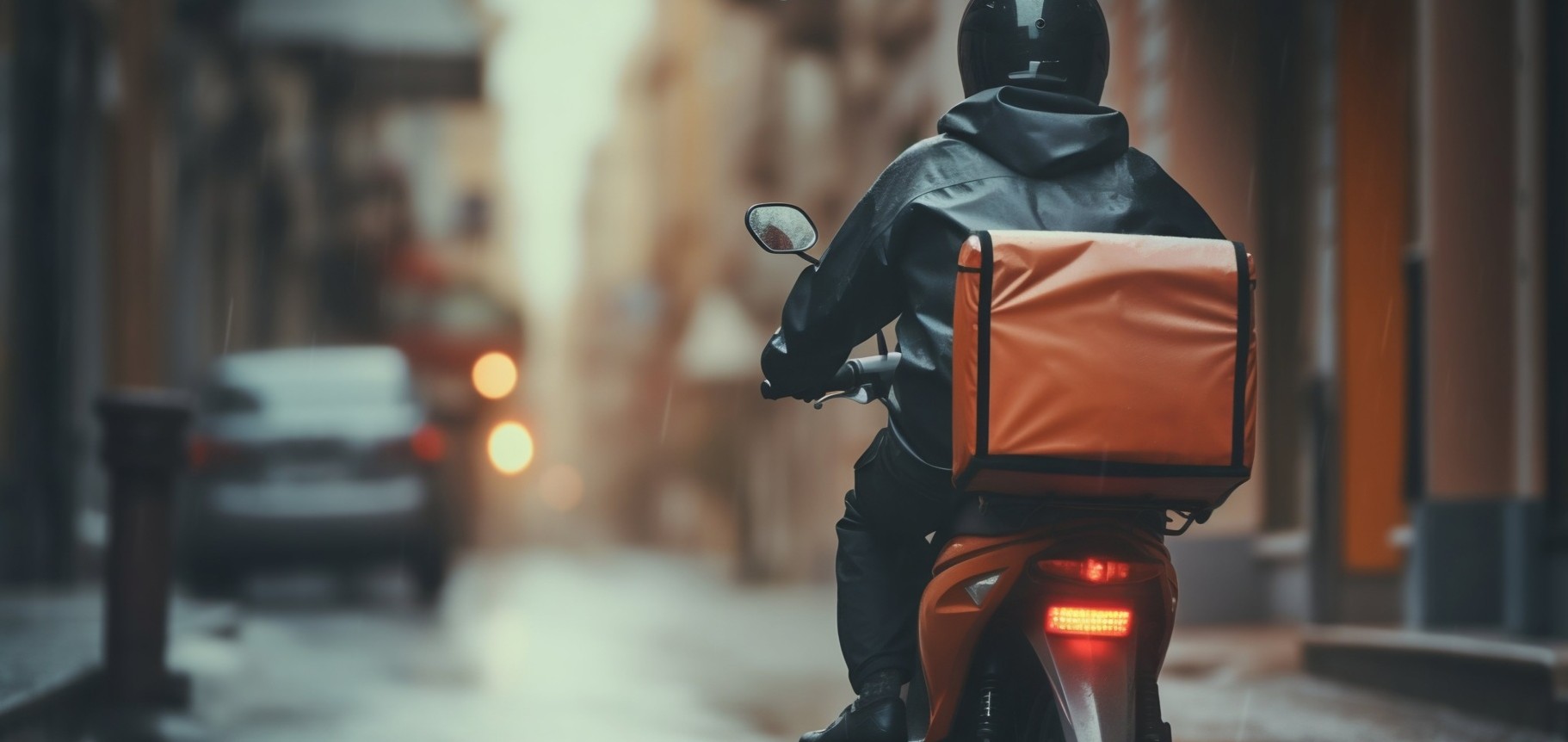By Jeffrey Chan
Hong Kong, 2 October 2025: A recent High Court judgment in a personal injury case has given rise to some discussion about the legal obligations food delivery platforms have towards their riders. The ruling also has implications for the gig economy and serves as a reminder to all stakeholders to be fully aware of the relevant regulations.
The matter involved a Foodpanda delivery rider who was working under a No. 3 typhoon signal, during which Foodpanda sent a message to all riders via the Telegram app, which stated: “The Hong Kong Observatory has advised that the No.8 Typhoon Signal is about to be issued. When it is hoisted, our operations will be suspended and no couriers shall deliver. If you will be delivering orders at that moment, please decide whether you can complete that order based on your safety.”
The rider completed three more orders. Some 18 minutes after the No.8 typhoon signal was issued, he finished his last delivery and was riding home when he was blown off his motorcycle, injuring his back, right knee and fingers.
Deputy High Court Judge Andrew Li found Foodpanda in breach of its common law duty of care, of the implied terms of the employment contract, and of its statutory duty under the Occupational Safety and Health Ordinance (Cap. 509). He declared the company 80% liable for the accident, and the rider 20% contributorily negligent for choosing to ride home under dangerous conditions. He awarded the rider more than HK$1.34 million in compensation.
The ruling highlights several critical issues:
Conflicting messages – There was inconsistency between Foodpanda’s Telegram message and the terms of the employment contract. While the message suggested riders could choose whether to continue working during a No. 8 typhoon signal, the contract provided that riders were obligated to continue deliveries unless explicitly instructed otherwise. The Court found it unreasonable to shift the burden of such decision-making onto the riders, especially when customer demand for food delivery typically increases during typhoons, and that is when riders may earn the most income and performance rating.
Unsafe system of work – The Court rejected Foodpanda’s excuse that its automated system required time to shut down and that coordination with its servers in Germany caused delays, emphasising that the company had a responsibility to ensure its system could be promptly halted to prevent exposing riders to unnecessary risks.
Breach of Labour Department guidelines – The Court found the employment contract attempted to “get round” safety requirements outlined in the Labour Department’s Code of Practice. It also criticised the firm’s reliance on Telegram to communicate with riders, noting it was inadequate during emergencies. Riders had to close the Foodpanda app and open Telegram to check messages, which was impractical during busy periods.
This ruling has clarified the Court’s expectations regarding platforms’ responsibility to safeguard riders against foreseeable and avoidable risks of injury, including those occurring during commutes outside the immediate workplace, especially under adverse weather conditions. The decision highlights the Judiciary’s readiness to carefully examine the operational practices of gig economy platforms and to assign liability when worker safety is inadequately protected.
However, the scope of this precedent remains uncertain. It is not clear whether the principles articulated in this case will extend to other categories of employees who are required to work in extreme weather, or how far such liability might reach in different factual scenarios. The boundaries of employer responsibility in these contexts are likely to be tested in future litigation.
It is also important to emphasise that, in the Foodpanda case, the employment relationship between the rider and Foodpanda was not in dispute. As a result, the Court did not address, nor did it rule on, the broader and often contentious issue as to whether delivery workers should be classified as employees or independent contractors. This judgment, therefore, does not provide guidance on the determination of employment status for platform workers more generally. Each case involving the question of employment status will continue to depend on its own specific facts and circumstances.
For a more direct examination of the employment status of delivery workers, reference should be made to the District Court decision in Gurung, Sanjaya Man v Deliveroo Hong Kong Limited [2024] HKDC 1932. In that case, the Court applied the established legal principles set out by the Court of Final Appeal in Poon Chau Nam v. Yim Siu Cheung (2007) 10 HKCFAR 156, and concluded that the rider in question was a self-employed contractor and, therefore, not entitled to bring a claim under the Employees’ Compensation Ordinance (Cap. 282). This decision provides more relevant guidance on the classification of delivery workers and highlights the fact-specific nature of such determinations.
As the food delivery industry continues to grow, this case underscores that protecting workers’ safety is not just a moral obligation but a legal one. For delivery platforms, the message is clear: prioritising safety is never optional – it is essential. For riders, the judgment offers hope for greater protection in an often precarious industry.
Jeffrey Chan has been a Partner in BC&C since 2015 and leads the firm’s Insurance and Personal Injury team which advises on legal matters and handles court cases for insurance companies and/or their insured parties. He practices all areas of civil litigation with a particular emphasis on personal injuries and property damage claims, employees’ compensation legislation and insurance-related disputes. He can be contacted at jeffrey@boasecohencollins.com.
Trainee Solicitor Gillian Choi contributed to this article.



